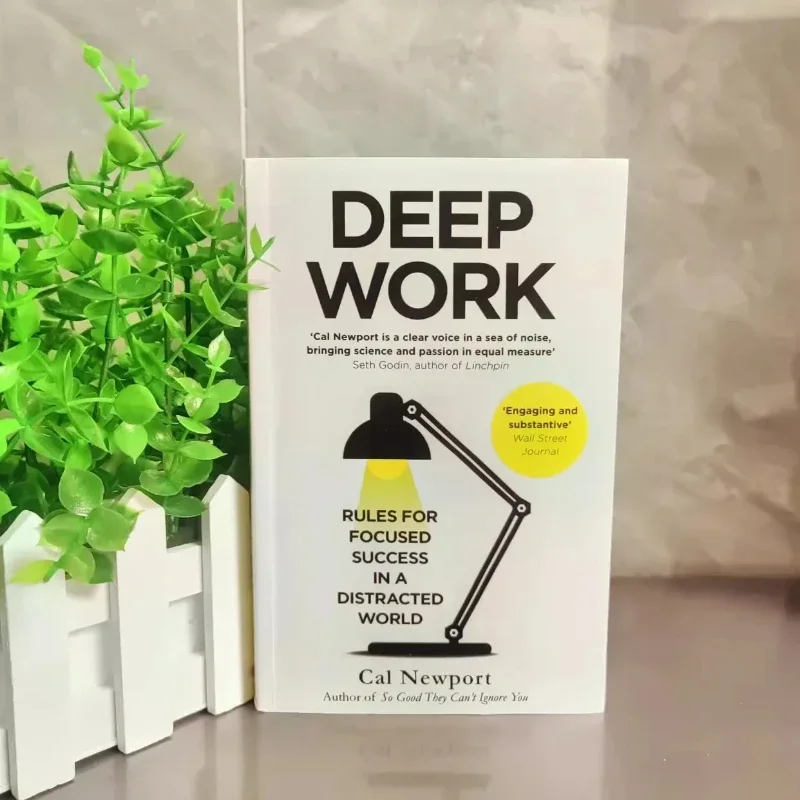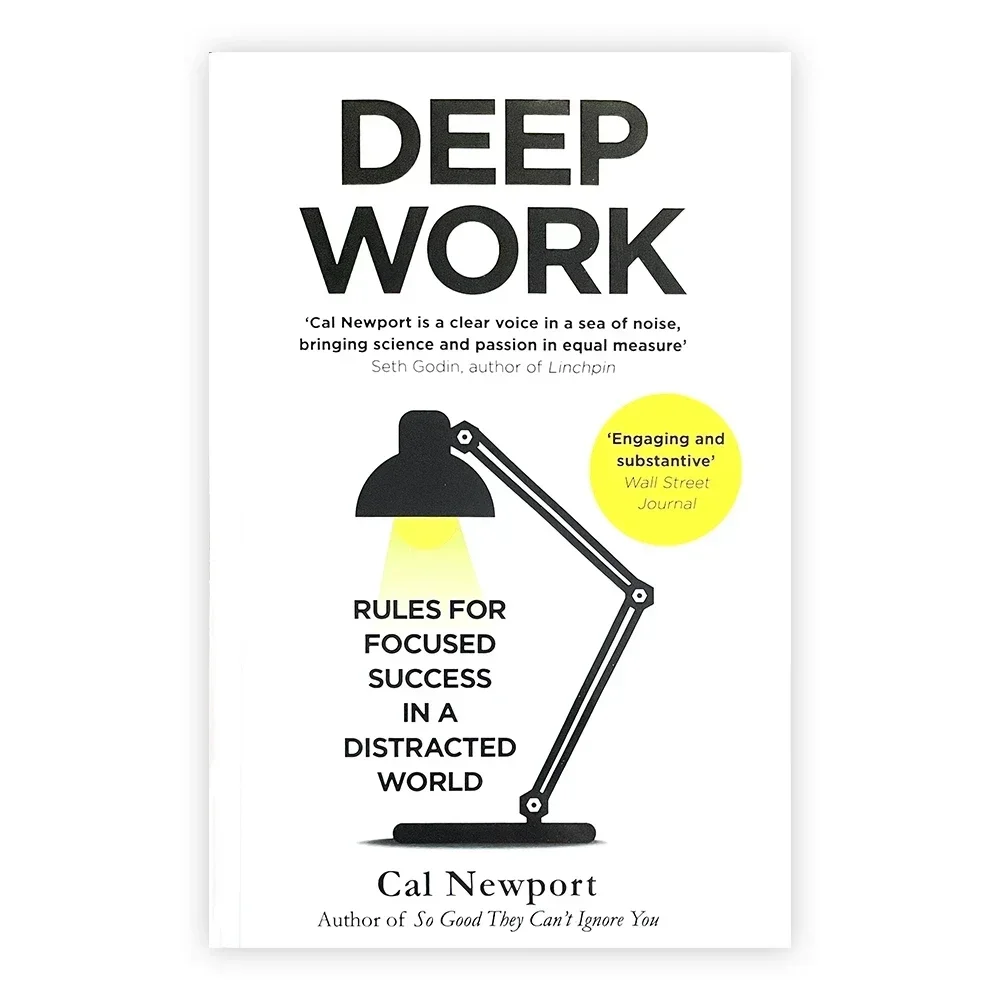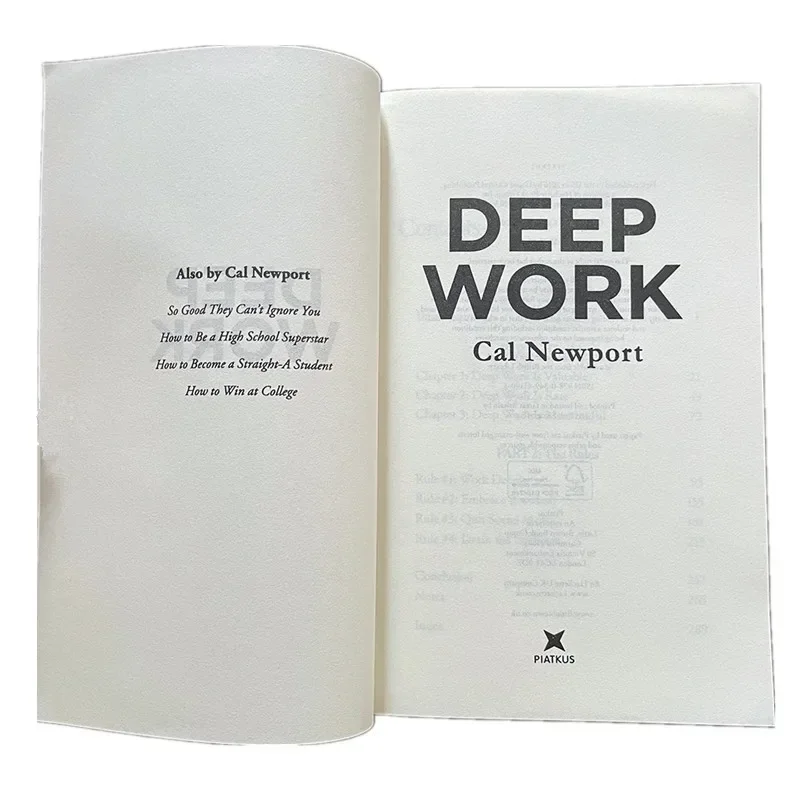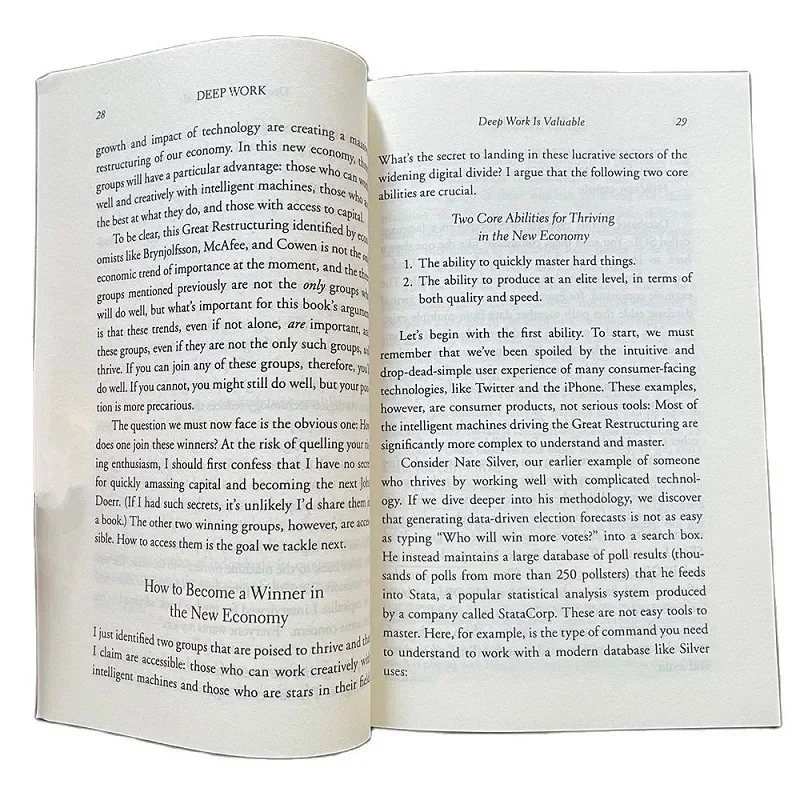
Deep Work English Book By Cal Newport Rules for Focused Success In A Distracted World Leadership & Motivation Books
SPECIFICATIONS
Age: Teen & Young Adult
Brand Name: NoEnName_Null
Choice: yes
Condition: New
Hign-concerned Chemical: None
Language: English
Origin: Mainland China
semi_Choice: yes
This book is a classic in the field of personal efficacy and career development, accurately pointing out the biggest pain point for modern knowledge workers - fragmented attention, and providing a powerful solution.
1. Core theme and definition
Title: Deep Work: Rules for Focused Success in a Distracted World
Deep Work: How to Effectively Utilize Every Bit of Brain Power
Author: Carl Newport, Ph.D. in Computer Science from MIT and Associate Professor of Computer Science at Georgetown University, is a bestselling author and productivity expert.
Core argument: In today's economy where distraction is the norm, there are two core competencies that determine an individual's success:
The ability to quickly master complex tools.
The ability to reach an elite level in terms of work quality and speed.
And both of these abilities depend on your ability to perform 'deep work'.
Deep work vs. shallow work:
Deep work: a professional activity that is focused on without interference. This type of activity can push your cognitive abilities to the limit, create new value, enhance skills, and is difficult to replicate. (For example: writing complex code, writing reports, brainstorming strategies, learning new skills)
Shallow work: tasks that do not require high cognitive requirements or strong logical coherence, usually carried out under interference. This type of work usually does not create too much new value for the world and is easy to replicate. (For example: replying to most emails, attending meetings, handling administrative affairs)
Why is' deep work 'so important? (Value)
Newport has demonstrated the immense value of deep work from four dimensions, calling it the 'superpower of the 21st century'.
From a neuroscience perspective, deep work can strengthen your focus muscles and help you better control your attention. On the contrary, constant distraction will permanently reduce your ability to concentrate.
From a psychological perspective, deep work can bring tremendous flow experiences, and flow is an important source of happiness, satisfaction, and achievement.
Philosophical perspective: In deep work, we challenge our own limits and find the meaning of work and the dignity of a craftsman.
From an economic perspective:
Becoming an industry leader: To become a top figure in your field, you must rely on deep work to deliberately practice and produce.
The winners of technological change: In the future where artificial intelligence increasingly replaces repetitive work, those who can perform complex and creative work (deep work) will become the biggest winners.
3. The Four Rules of Practicing "Deep Work" (Methodology)
The latter half of this book is a highly operational action guide that proposes four major rules:
Rule 1: Work should be done in depth
Several profound philosophies have been proposed to adapt to different people's work styles:
Abstinence philosophy: Completely eliminate or minimize superficial responsibilities like ascetics (suitable for freelancers and scholars).
Shuangfeng philosophy: Divide personal time into two parts, one for deep pursuit and the other for doing everything else (for example, allocate 2-3 days per week entirely for deep work).
Rhythm philosophy: Engage in deep work at a fixed time every day, turning it into a simple habit (e.g. 9-11am every day).
Journalist philosophy: Whenever there is free time, immediately switch to deep work mode (the most difficult, suitable for experienced and highly disciplined individuals).
Rule 2: Embrace boredom
Don't use the internet to entertain boredom: Don't habitually swipe your phone during fragmented time (such as queuing), instead make yourself "bored" for a while. This helps train your brain to increase the threshold of concentration.
Planned distraction: Plan your internet usage time in advance and completely disconnect from the network outside of these times.
Rule 3: Stay away from social media
It is not completely unnecessary, but rather a criticism of "any benefit thinking": that is, do not use a tool just because it can bring "any possible benefit", but rationally analyze whether the overall benefits it brings outweigh the cost of distracting your attention.
Digital disconnection: Regularly evaluate the tools and services you use and decisively abandon those that do not provide significant benefits.
Rule 4: Abandon superficiality
Set a time limit for shallow work: for example, limit your daily time spent on shallow work to no more than 1-2 hours, which will force you to prioritize important tasks.
Becoming difficult to reach: Manage others' expectations of your time by setting up automatic email replies, explaining reply habits in signature files, and other methods.
Say 'no' to tasks: bravely reject meetings, invitations, and tasks that do not bring core value.
Who is this book suitable for?
Knowledge workers: programmers, writers, designers, scholars, analysts, students, and other individuals who require a significant amount of mental labor.
People who feel distracted and inefficient: They always feel busy, but their output is not satisfactory.
People who hope to reach the top level in their field.
Anyone who wishes to regain control over their attention and time.
5. Evaluation and Inspiration
Deep Work "is a book that perfectly combines profound insights with practical advice. It is not just a time management book, but also a philosophy book about how to live and work with high quality.
It challenges the modern work culture of "always online" and "multitasking", and strongly argues that in a distracted world, focus is a scarce and precious quality, and those who can cultivate and protect this quality will gain huge competitive advantages and personal satisfaction.
In summary, this book provides you with a powerful framework to consciously place deep work at the center and priority, in order to create the work outcomes and meaning of life you desire. It is an action guide that can truly change your work habits and thinking patterns.









